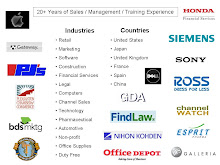The 'art' of failure has gotten a bad reputation over the years... to such a degree that everybody avoids it as much as possible. However, that type of attitude will make you
less likely to succeed... not more.
Take sales for example. Even the 'best of the best' sales professionals have a close rate well under 50%. As a matter of fact, you would be considered a superstar if you consistently closed one out of every three opportunities. Knowing those percentages, you would think that more people would welcome "No's" because that would get them closer to the next "Yes!"
However, we have been conditioned that getting a "No" means you're a failure... and being a failure is bad. Therefore, we do everything within our power to avoid getting a "No"... including
not calling prospects in the first place. The required paradigm shift is simple.
In order to be more successful... stop being a failure at failing!
 The "Check Engine" light came on again in my wife's car today. Like always, I have no idea what that means... other than the fact that it will end up costing me money that I don't want to spend.
The "Check Engine" light came on again in my wife's car today. Like always, I have no idea what that means... other than the fact that it will end up costing me money that I don't want to spend. 








